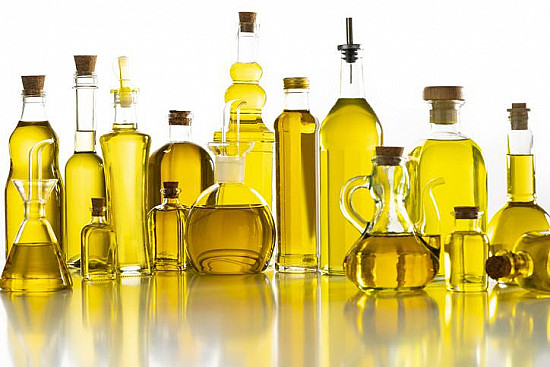Is it safe to go vegan in older age?
The diet takes vegetarianism to the extreme and poses a risk for nutrient deficiency. But it does offer health benefits.

If tofu turkey and meatless meatloaf are on your holiday menu this year, you may have made the switch to a vegetarian diet, eliminating at least some animal protein. But how much animal protein can you safely cut out of your diet?
Vegetarian diet benefits
Among the many types of vegetarian diets, three are particularly common: a pescatarian diet allows seafood; a lacto-ovo diet allows dairy products and eggs; finally, a vegan diet allows no seafood, dairy, or other animal products.
All of these approaches typically include lots of fruits, vegetables, legumes, whole grains, nuts, seeds, and healthy oils. These plant-based foods contain several healthy components:
- a wide variety of antioxidants, which have anti-inflammatory properties that are linked to better health
- lots of fiber, which helps prevent constipation, lowers LDL (bad) cholesterol, and controls blood sugar and weight
- low saturated fat compared with a non-vegetarian diet.
Compared with meat-containing diets, the health benefits of all vegetarian diets are well documented: lower rates of heart disease, high blood pressure, diabetes, obesity, and cancer. The picture isn't completely straightforward: a study published Sept. 4, 2019, by The BMJ found that along with lower rates of heart attacks, vegetarians had higher rates of hemorrhagic (bleeding) stroke, compared with meat eaters. The increase equaled about three more cases of hemorrhagic stroke per 1,000 people over 10 years. Most other studies have not identified such a risk.
Vegan diet benefits and challenges
If plant-based foods are generally healthier than animal-based foods, should you consider a vegan diet, banishing all animal products? It seems like something to consider, with the increasing amount of vegan foods now sold in grocery stores and restaurants.
Whether a vegan diet has even greater benefits than a less restrictive vegetarian diet is unclear. "Because the vegan diet is restrictive, it can be a challenge to maintain over the long term," says Kathy McManus, director of the Department of Nutrition at Harvard-affiliated Brigham and Women's Hospital.
A study published in April 2019 in The Journal of Nutrition found that a vegan diet slightly outperformed a pescatarian diet and a lacto-ovo diet when it came to the amount of antioxidants and omega-3 fatty acids in the blood, and that a vegan diet significantly outperformed diets with meat. However, this is just one study. "Most studies don't separate vegan and vegetarian diets, so we don't have a lot of evidence comparing one vegetarian diet to the other," says McManus.
A vegan diet also comes with health risks, especially for older adults, although you can take action to counteract those risks. In particular, McManus notes, when you cut out animal products, you may come up short on certain nutrients:
Calcium. Calcium is important to many functions, especially bone, dental, heart, nerve, and blood health.
Protein. We need protein to build strong muscles, bones, and skin — particularly as we age and lose muscle and bone mass and have a harder time healing from wounds.
Vitamin B12. This vitamin comes only from animal-based foods. B12 is crucial to our DNA, red blood cell formation, new cell growth, glucose metabolism, and maintaining our nervous system and thinking skills.
In addition, you may have trouble getting enough calories on a highly restricted diet. If you don't give your body enough fuel, you may become tired or malnourished.
Avoiding deficiencies
"You have to be selective when choosing a plant-based diet to ensure that you get enough calories and nutrients," McManus says. Here's how to avoid the potential pitfalls of a vegan diet — or, for that matter, any other type of vegetarian diet:
Avoid calcium deficiency. Eat plant-based foods that are rich in calcium: almonds, dark leafy greens (kale, spinach), figs, tofu, and oranges. A medium-sized orange has about 50 milligrams (mg) of calcium; a cup of cooked collard greens has 268 mg of calcium. Aim for 1,000 to 1,200 mg of calcium per day.
Get enough protein. Eat protein-rich plant foods: soy products (tofu, tempeh, and edamame), legumes (beans, lentils), nuts (walnuts, almonds), chia seeds, and spirulina (blue or green algae). For example, a cup of canned navy beans has 20 grams of protein. Chia seeds have about 4.5 grams of protein per ounce, and sunflower seeds have about 6 grams per ounce. You need about 7 grams of protein daily for every 20 pounds of body weight.
Avoid vitamin B12 deficiency. Try B12-enriched vegan foods such as fortified plant milks (like almond or soy milk) or fortified cereals. McManus says you may need to take a B12 supplement while on a vegan diet. We also advise that your doctor check your blood level of vitamin B12 regularly.
How should you start?
Get the okay from your doctor before starting a vegan diet, and then seek advice from a registered dietitian, who can tailor an eating plan to your nutritional needs.
Combine plant food sources for the maximum amount of vitamins and nutrients. Soups, salads, and smoothies with lots of different kinds of foods will help you maximize calories and nutrients.
And by all means, take it slowly. "Get rid of red meat, and then poultry, and then dairy products and fish," McManus says, "But don't feel that you have to eliminate all of them at once."
Image: laflor/Getty Images
Disclaimer:
As a service to our readers, Harvard Health Publishing provides access to our library of archived content. Please note the date of last review or update on all articles.
No content on this site, regardless of date, should ever be used as a substitute for direct medical advice from your doctor or other qualified clinician.















